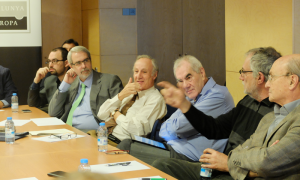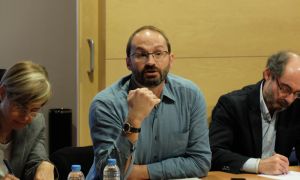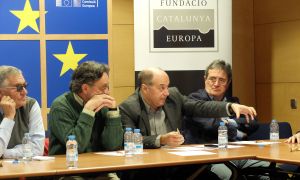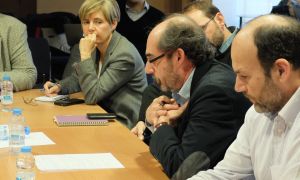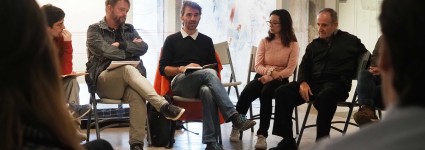The Catalonia Europe Foundation today presented the document "What European Tax Union?" to contribute to the European debate on greater fiscal integration by defining what its characteristics should be and whether or not a "transfer union" should be advanced. The project has the support of the Greens / ALE group in the European Parliament and its results have been discussed today in Barcelona with the aim of completing the document based on various contributions.
Ernest Maragall, MEP in the European Parliament, opened the event with words that frame the state of affairs very well: "Fiscal union is not fashionable". Maragall is part of the Tax Resolutions Commission, recently created to investigate European countries that make special regulations for large multinationals. "In this commission we work to force large companies to declare their business and benefits to all European countries." These countries that create fiscal dumping are generating unfair competition, and allow 200,000 million euros of revenue to be lost every year. With these data, according to Maragall, the field of possibilities that the EU would have with a true fiscal union is unlimited ".
Jordi Angusto, economist and coordinator of the study, remarked that the European decisions of the past make even more necessary the constitution of a fiscal union nowadays. He was referring to the incorporation of the euro and also austerity as a recipe for the crisis. "Growth has been asymmetric, and inequalities have increased". He highlighted unemployment and lack of internal demand as the two most important challenges facing the EU, unsolvable without the creation of a fiscal union. One of the keys, according to Angusto, would be for the EU to collect its own taxes, especially through a European corporation tax, a federal corporate tax like the one in the United States.
Angusto has also introduced a subject of intense debate at present, that of Europe at two speeds. "In Europe we have two entities of power, the EU as such and the eurozone, this second one is out of control and is not institutionalized, because it does not have any regulation, it is a black hole with a brutal capacity." As he himself recently wrote in an article, "the EU must finish its design, or the current one will end it".
For Joan Majó, member of the FCE Advisory Council and co-author of the document, the fiscal union is inseparable from the original idea of ??the EU's creation, which should lead to a final political integration: "I do not agree on a fiscal union without transfers". Angusto cautioned, however, that "Germany does not even want to hear about transfers", especially if they are not temporary. It is also essential to take into account projects where investments are focused: "Not on 'AVEs' or tanks ... Yes on solar and renewable energy, Spain has a resource in abundance, which is the sun". Francesc Raventós, an economist and co-author of the study, has also stressed the importance of choosing investments well: "we have to change the production and consumption model with more emphasis on intangible assets".
Among those attending the event were Ferran Tarradellas, director of the Representation of the European Commission in Barcelona; Joan Herrera, national coordinator of ICV; and Xavier Ferrer, president of the Catalan Council of the European Movement among others. All of them have wanted to contribute their ideas in the final debate, which will serve to complete this document on the fiscal union that we will publish soon.
Maragall, who had started the act with an unenthusiastic tone regarding European taxation and the European future in general, has closed it, but, with some words that are hopeful and realistic: "Reason and the heart call Europe, but the stomach - the countries - do the opposite, there is a European movement against the current policy, prisoner of the states, Europe can not be based on a Union of transfers, but on a Union of transformation".



